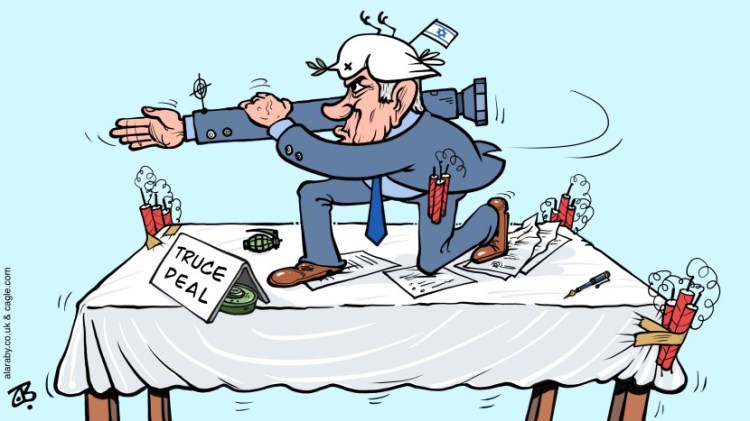

The Prussian general and military theorist Carl von Clausewitz once said that war is the continuation of politics by other means. This is certainly true of the conflict between Israel and Hamas, and when one is confused, the other is confused too.
One important example is the hostage issue. During a dramatic raid to rescue four hostages, the Israelis are said to have killed over 300 Palestinians. This ratio cannot be repeated, not only because it is completely unfair, but because the more Palestinians are killed, the less likely Hamas is to negotiate the release of the hostages. However, if the Israelis scale back hostilities to free the hostages, the right-wing ultra-Orthodox parties on which Israeli Prime Minister Benjamin Netanyahu depends for his political survival will likely overthrow the government. Netanyahu is thus caught in a bind. Meanwhile, the hostages’ relatives are urging the government to do everything in its power to bring them – or their bodies – home. Adding to these difficulties is the fact that Israel is becoming increasingly isolated internationally as a result of its conduct of the war. In short, confusion reigns, both militarily and politically.
A second key issue is who will govern Gaza after hostilities cease. The draft of the three-stage ceasefire agreement between Israel and the US leaves this deliberately vague. It is widely known that President Joe Biden’s administration would prefer to give this task to a revived Palestinian Authority, which currently governs the West Bank. But Netanyahu is dead set against this, insisting that the Israelis must maintain a military presence in Gaza for an indefinite period after the war ends. Hamas wants to resume administration of Gaza, which would be a dealbreaker for Israel.
One obvious solution, not currently being considered, is sending in a UN peacekeeping force. But that can only happen once all hostilities have ended. As one former senior intelligence officer put it bluntly: “There is no good solution here and everyone knows that.”
Another aspect to consider is Israel’s relationship with the United States. Historically, the US has been Israel’s strongest ally and, as a member of the UN Security Council, has repeatedly rejected proposals that were seen as a threat to Israel’s security and sovereignty. However, in June, the US and Israel worked out a three-part ceasefire proposal that was adopted by the Security Council. However, Netanyahu rejects the proposal, in part because it calls for an immediate and permanent ceasefire.
In military terms, the overall picture of relations is no clearer. Until recently, the US supplied Israel with most of the weapons it needs for war, including armored vehicles, aircraft, bombs and artillery shells. In May, the Biden administration announced that it would limit the supply of most of these weapons. Funds for the purchase of these weapons were also cut. Netanyahu protested to President Biden personally, but to no avail. But last month, the Biden administration announced that Israel would receive $3 billion worth of F35 jets, the Air Force’s main fighter aircraft (although not until 2028), an obvious signal to reassure the nervous ally.
One would think that in such a deadly conflict, the war aims on both sides would be clear. But although the Israeli government appears to have agreed to the three-part peace proposal, Netanyahu has categorically stated that the war will not end until Hamas is militarily and administratively wiped out. If Netanyahu implements this plan, thousands more Palestinians will die.
As for Hamas, its war aim appears to be Netanyahu’s worst nightmare: a permanent ceasefire, followed by a role in governing the Gaza Strip and the return of several hundred prisoners of war held by the Israelis.
To unravel these confusions, one must focus on three points that are currently being discussed. First, there must be an immediate and permanent ceasefire. Second, the hostages must be brought home safely. Third, and most importantly, the Oslo Accords must be revived, with the aim of making real progress towards a two-state solution. Without this – it is the root of all problems – the road to peace will be very long indeed.
Richard Ogle of Camden is a writer, researcher and management consultant. He holds a PhD in linguistics from UCLA and is the author of Smart World: Breakthrough Creativity and the New Science of Ideas, published by Harvard Business School Press.
Copy the story link
” Previous
Michael Reagan: Vacation from politics
similar posts





